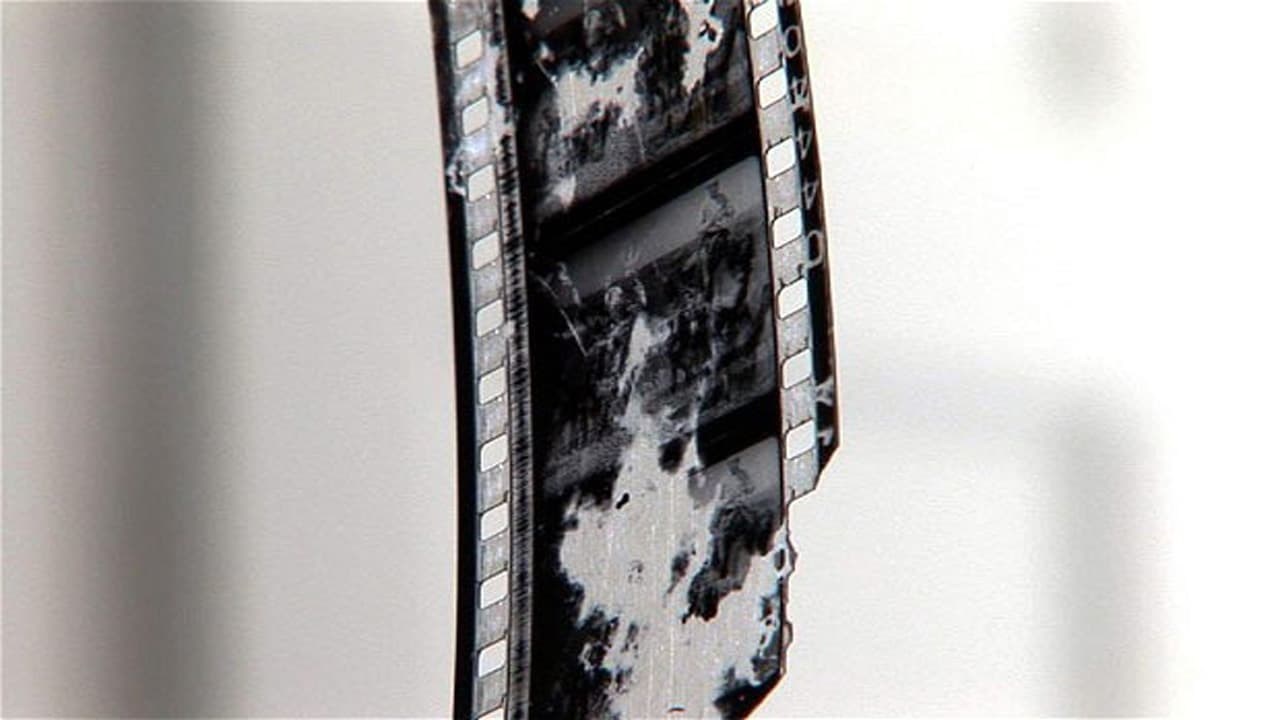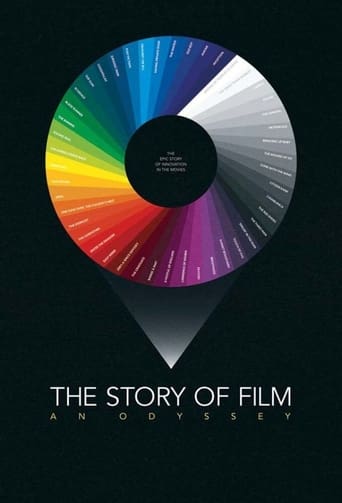

Very very predictable, including the post credit scene !!!
... View MoreBest movie ever!
... View MoreThe acting is good, and the firecracker script has some excellent ideas.
... View MoreThe movie's neither hopeful in contrived ways, nor hopeless in different contrived ways. Somehow it manages to be wonderful
... View MoreMark Cousins is a bright man and in the past I have enjoyed his documentaries about cinema. As this was his personal view I expected it to be idiosyncratic and I wouldn't particularly have a problem with that. I watched the whole series but I cannot recall a single interesting fact I learned from this series. I can unfortunately recall some poor shooting Mark Cousins misguidedly undertook himself and a couple of interviews that were disaster areas in terms of framing and sound quality. Overall this was so sloppy and poorly structured. Maybe he needed a experienced producer, director and editor to bang Cousins' vision into shape? Or maybe the scope was simply too vast?
... View MoreWhy do the IMDb robots (currently) feature a 2-star review for a series that's rated 8-stars? A shame. Hire better robots...or humans!The complaints about Mark Cousins' accent are specious at best, moronic in practice. If you're looking for a PBS documentary style, please steer clear. Nothing against PBS, but this series has a voice and it's not just the accented narration. It's also the interstitial video work that provides a very personal take on the history of cinema. Yes, the rising inflection is not your normal, bland American voice-over. It's distinct and nuanced and, to my ears, warm. OK, enough with the narration non-issue.For anyone who's wanted a sweeping Film 101 course on the mechanics and effects of this infant art form, this is, to my knowledge the best you will get. Scorsese has attempted this in recent years and has had some ad hoc success (his PBS biography on Elia Kazan was a high point). What Cousins accomplishes is a poetic exposition on the grammars of the medium in a highly selective, yet globally inclusive trajectory of its history. The most telling and powerful tool in his belt is the way he's able to jump from the 1920s to the 1970s or 2000s, when he's explaining the inventions of technique and the matrix of influence from progenitors to the next generation. For example, to hear one of Ozu's actresses talk about his manner of direction is invaluable. His simple, somewhat comic video-quality recreations of the "180 degree" rule (as well as those who love to break it), makes all YouTube studies obsolete, and somehow doesn't disrupt the unworried, well-paced narrative.Good work, Mr. Cousins. Love your other films as well. p.s. Calling him just a film critic and historian does a disservice to this series as well as his other film work. He's a director. And that's why this film doesn't feel academic. Thankfully.
... View MoreObviously there was not enough budget for this immense task. So the maker had to cut expenses and had to do many things himself. Just because you know a lot about film doesn't make you a good cameraman or even a narrator. But instead of leaving it just to an idea. He grabbed what he could and went on an odyssey. And he probably thought that film lovers would see that and understand it. He also would have thought that film lovers would appreciate his personal way of doing things, just as many of the filmmakers he portrays do things their very own way. But No! IMDb reviewers are much more interested in Hollywood conventions that in anything else. So considering the obvious lack of resources, money and most likely time, I would consider this a masterpiece to those with an open mind who are not constricted to National borders to find out about the origin of film style and technique.Keep in mind: Odyssey means a daring trip to find something while confronting dangers and solving problems along the way. Getting there is more important then how. Story means a series of thought s and events chained together in a very personal way. So let go of any pre-judgements and learn from this series about the incredible history of film, told in a very personal way.
... View MoreKaleidoscopic series documenting film from the late 1800's.Irish critic Michael Cousins has an idiosyncratic means of presentation but I found him a congenial, sensitive, and intelligent guide in a journey that truly does feel like an odyssey in its wonder, variety, and complexity.Films I'd like to see or re-view based on Cousins' introduction/interpretation: 1) Stagecoach. Ford: "It's the little guy that does the courageous things." 2) Citizen Kane. Welles' attraction to powerful people is like Shakespeare's. Kane's world is massive but empty. 3) Best Years of Our Lives. Frederick March. "Just as in real life we cannot see everything we would like to." 4) Code Unknown. Binoche. Wife getting away from husband on subway.5) How to Marry a Millionaire.6) Un Homme et une Femme.7) Rome -- Open City (1945). City's struggle to resist fascism. Magnani pregnant, unmarried, unglamorous, older. Italian neo-realism: bald light bulbs.8) Bicycle Thieves. Kid almost hit by car twice. No time for, interest in, hugs.9) Double Indemnity. Noir. Hollywood. "Hardly anyone walks so those that do can hear their own footsteps." "America's most curious filmmakers went abroad." Billy Wilder fled Nazis for sun-drenched Ca. "Loved the unpretentiousness of America, hated its worship of money." 10) Chinatown. Robert Type, writer. "Flaw draws them to fate as they try to avoid it." 11) Out of the Past. Robert Mitchum "wants a decent girl but can't stay out of the way.' "Crackled with snappy dialog." 12) Rio Bravo. Angie Dickinson "got all the best lines." 13) Out of the Past. Jean Greer knows the man is weak.14) The Hitchhiker. Ida Lupino "mastered the noir form." 15) Quai des Brumes.16) La Chienne. Man in love with hard-hearted woman.17) Two for the Road. Donen: "Such a hard, tough look at marriage." 18) Singin' in the Rain. "He's not worried about getting wet. He's so joyful that rain doesn't bother him. He's thrilled with being in love." 19) A Matter of Life and Death. Doomed Niven: "I'll be a ghost and come visit you." 20) Listen to Britain. Mozart piano concerto. "Things that get people through trauma together...It might be the last summer when they're free." 21) The Third Man. "One of the most daring of endings."22) Gun Crazy. B-movie director Lewis. Bank robbery in LA suburb of Montrose. Presaged Bonnie and Clyde.CHAPTER 6: "Non-Western world decolonized, got confidence...Western world: Sex and power on the mind. 23) Rebel Without a Cause. Emotion bursting at the seams.24) Cairo Station. Egypt: "Even more to kick out against...First great Arab, first great African film. Chahine (born boundary-pusher) alone with his sweaty erotic imagination. Crippled newspaper seller listens as she has sex with another man. Where did he get the balls to be so innovative? Spat on face opening night.25) Satyajit Ray...Junibelle Devi "living in a brothel when Ray found her, needed a dose of morphine each day to keep her going."26) Devi. "She becomes a victim of this regressive mindset." 27) Ikiru. Bureaucrat gets cancer. Most movies of Kurasawa about the energy of the individual...distinguishing themselves from others. Kurasawa hero notable for staying power...Kurasawa's stylebook for cinema. A one-man style school.28) Throne of Blood. Connect with The Godfather climax." 29) Dona Barbara. Mexico. Companion shot, raped by sailors.30) The Pearl. "Becomes a cancer in their lives."31) All that Heaven Allows. Jane Wyman, gardener Rock Hudson. "Viciousness of American conformity."32) Marty. "Access the serious emotions."33) On the Waterfront. Brando. "Your guts is all in your wallet and your trigger finger." "As Freud had taught, the surface is a lie, a mask." 34) And God Created Woman. "Brigette Bardot refused to dress like a posh Parisian woman."CHAPTER 10:More to film in 70s than Coppola and Scorsese! "We tend to think of films as Hollywood but there's so much else going on in the world." 35) Ali, Fear Eats the Soul, Fassbinder. Inspired by "All that Heaven Allows." Fassbinder plays one of the lead character's prejudiced relatives. 36) Bitter Tears of Petra von Kant. Bette Davis in "All About Eve." "Fassbinder takes the American movie much further...has his actors move slowly, inexpressively, as if haunted or exhausted...Wigs and makeup conjure artifice." With amazingly visaged Irm Hermann, Fassbinder's erstwhile secretary and lover: "He treated her appallingly." 37) Fox and his Friends. Full frontal nudity of the director himself, lazily getting out of bed.38) Alice in the Cities. Iconic Boardwalk, Empire State. 39) Gods of the Plague. Non-tense bank robbery. Hertzog: "Wild man of German cinema...its explorer"40) Burden of Dreams. Hertzog speaking Spanish. "Only difference between you and me...I can articulate them...What poetry is all about."41) "Arabian Nights," Pasolini. Shocking image of sexually submission boy. Ken Russell. Air Force to ballet dancer, "rare career move...Movie gangsters are often about display." 42) Performance. "Last act before he's taken away is to shoot Turner -- maybe because he's shown too much of himself...Most imaginative shooting in series...mandatory viewing for film directors." 41) Walkabout. "A life less ordinary...She meets a more vital human being...What sort of person you are -- one who swims in a chlorinated pool or the open sea."
... View More